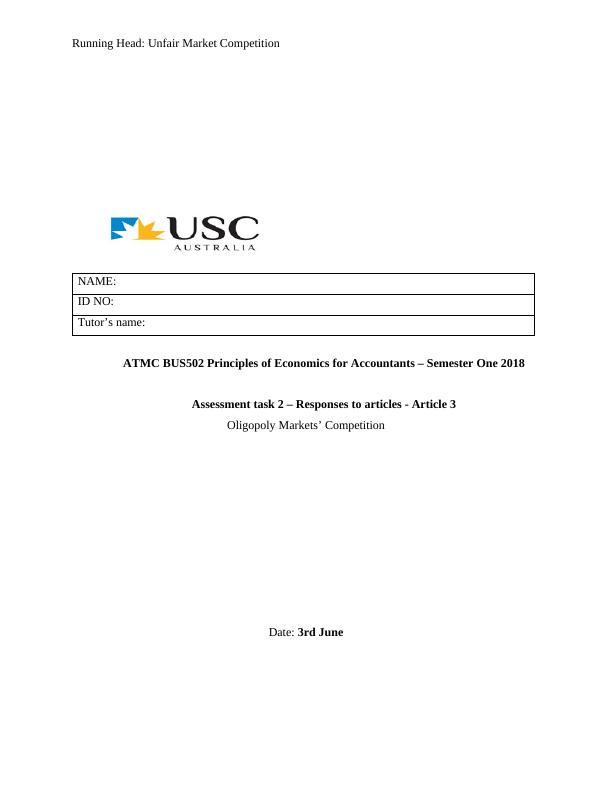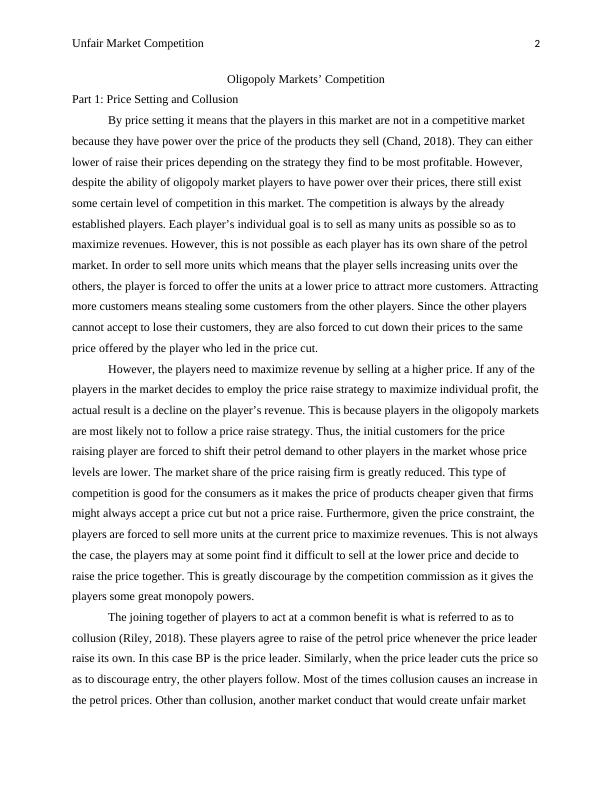Unfair Market Competition in Oligopoly Markets: Impacts on Welfare and Characteristics of Petrol Market
Added on 2023-06-11
5 Pages1384 Words297 Views
End of preview
Want to access all the pages? Upload your documents or become a member.
Oligopoly Competition in the Australian Market
|5
|1362
|477
Market Structures, Business Cycles and Macroeconomic Indicators
|9
|1893
|486
The Impact of Price War Competition by the Australian Supermarket Giants
|8
|1993
|389
HI5003 Economics for Business | Australian Market Structures
|6
|1435
|75
Monopolistic Competition and Oligopoly Markets
|10
|849
|321
Apple Case Study Analysis Assignment 2022
|12
|2020
|16


